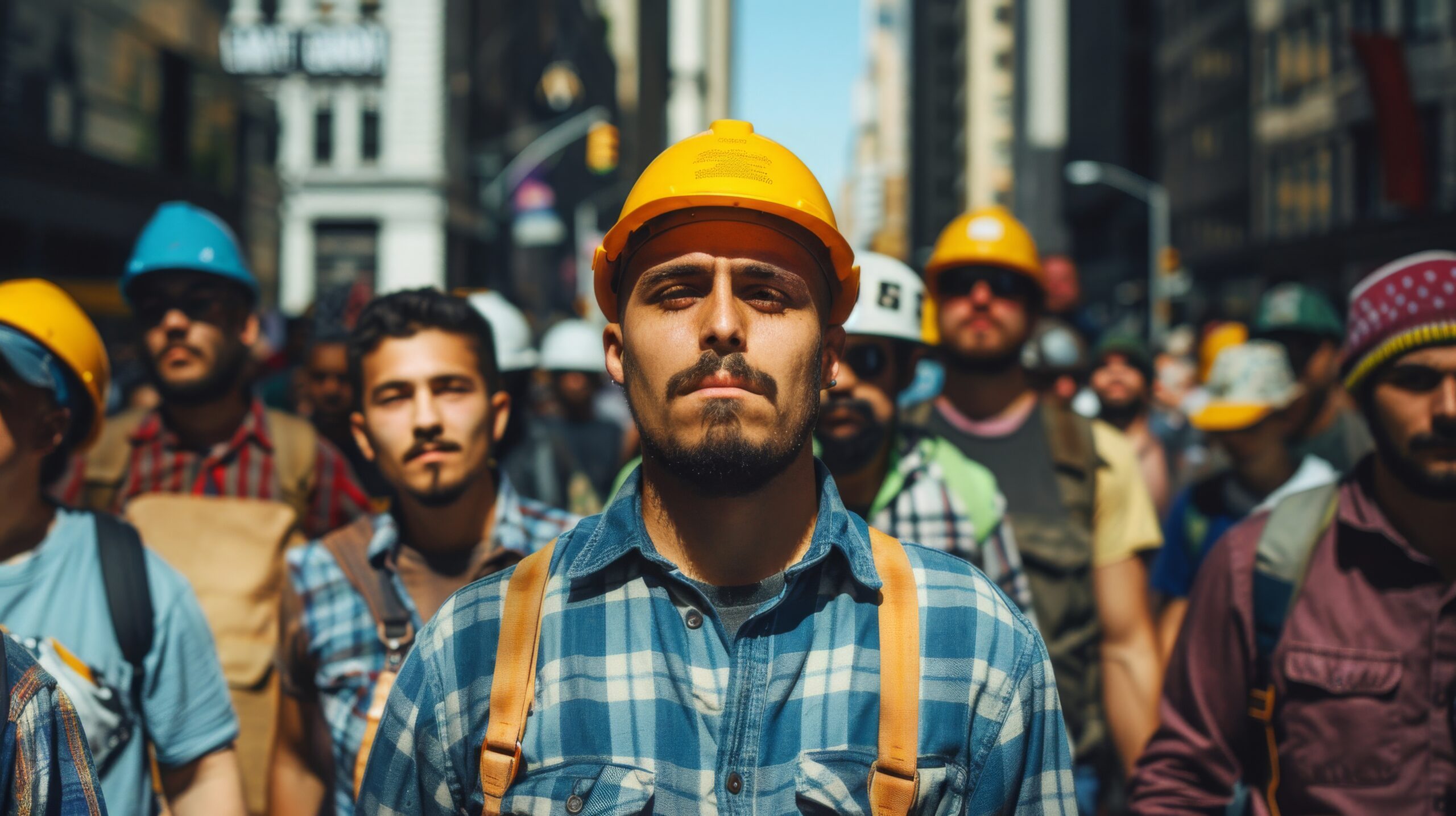Written by: Oscar Revolledo
The UK government’s ambitious pledge to build 1.5 million homes over the next five years—an average of 900 homes every single day—has exposed a critical weakness in the nation’s labour market: a severe shortage of domestic construction workers. With an estimated shortfall of 300,000 skilled workers, the industry has turned to migrant labour to fill the gap and keep this monumental effort on track.
A Workforce Under Pressure
According to the Construction Industry Training Board (CITB), an additional 251,500 workers will be needed by 2028 to meet anticipated growth in construction output. This is on top of the current shortfall. Compounding the problem is the ageing construction workforce. Between 1991 and 2011, the number of construction workers aged 45 and over increased by 13%, according to the Office for National Statistics (ONS), highlighting the pressing need for fresh talent in the sector.
Yet, the younger generation appears less inclined to pursue careers in construction. Without intervention, this trend could threaten the UK’s ability to deliver not just housing but a range of infrastructure projects critical to economic growth.
The Migrant Workforce: A Crucial Pillar
In the face of this labour crisis, migrant workers have become indispensable. CITB data shows that non-UK nationals made up 14.2% of the construction workforce in 2016, up from 7.5% in 2007. While this figure dipped slightly to 13.4% by 2020, migrants continue to be a cornerstone of the industry, particularly in London, where nearly half of the construction workforce comes from overseas.
Migrant workers bring vital skills and labour to the industry, filling roles that domestic workers cannot or will not take. They are, quite literally, building the foundations of the UK’s future. But their essential contributions often come with a price.
Exploitation in the Shadows
Heavy reliance on migrant labour raises uncomfortable questions about fairness and ethics. Migrant workers are disproportionately vulnerable to exploitation, often finding themselves in precarious conditions. Lower wages, unsafe working environments, and limited access to legal protections are just some of the challenges they face.
One notable case that underscores the risks faced by migrant workers involves Romanian labourers in the Midlands who were trafficked into the UK and forced to work on construction sites under appalling conditions. According to a 2020 report by the Gangmasters and Labour Abuse Authority (GLAA), these workers endured 12-hour days with no breaks, were paid far below the minimum wage, and lived in overcrowded, unsanitary housing provided by their exploiters. Despite their key role in completing major housing projects, they had no legal recourse or means of escape until authorities intervened.
The reasons for this vulnerability are multifaceted. Language barriers, lack of awareness about workers’ rights, and insecure immigration statuses create an environment ripe for mistreatment. A report by the Work Rights Centre highlights systemic issues within the UK’s labour market that leave migrants exposed to unethical practices.
Balancing Demand and Fair Treatment
The urgent need for workers cannot come at the cost of human dignity. To address the construction labour shortage while safeguarding migrant workers, a comprehensive and balanced approach is essential:
Training the Domestic Workforce
Expanding apprenticeships and vocational training programs is key to reducing reliance on migrant labour. Housing Minister Matthew Pennycook has championed efforts to bolster bricklaying apprenticeships, highlighting the need for a long-term investment in domestic talent.
Strengthening Legal Protections
Migrant workers must have the same rights as their domestic counterparts. This includes strict enforcement of minimum wage laws, access to safe working conditions, and robust legal recourse for those facing exploitation.
Raising Public Awareness
Migrant workers are too often seen as faceless contributors to the economy. Public campaigns can shift this narrative, showcasing their integral role in solving the housing crisis and fostering a more inclusive environment.
A Shared Responsibility
The UK’s plan to build 1.5 million homes is a national priority, but it also presents an opportunity to reflect on how the country values its workforce. Migrants are not just filling gaps in labour—they are shaping communities, enabling families to find homes, and driving economic progress. Their contributions should be recognised, celebrated, and protected.The construction labour shortage demands urgent action, but this action must be grounded in fairness. The story of the UK’s housing boom can be one of mutual success, where workers—domestic and migrant alike—are treated with respect. But without vigilance and accountability, it risks becoming a cautionary tale of exploitation hidden behind bricks and mortar.
The homes built over the next five years will stand as a testament to collective effort. Let’s ensure the legacy they leave is one of fairness, dignity, and shared prosperity.

